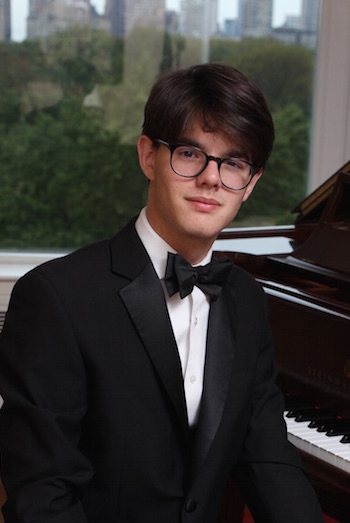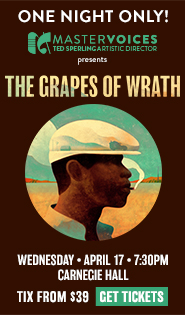Young pianist needs seasoning, Orchestra of the Swan loses some feathers in U.S. debut

Thomas Nickell performed concertos of Mozart and David Matthews Sunday at Weill Hall.
The little Orchestra of the Swan came into Weill Recital Hall for a large—nearly three-hour—concert Sunday afternoon. The program was a grab bag of pieces, like a conservatory recital, that had the partisans in the audiences rising from their seats at the end, while the curious listener left feeling both relief and exhaustion.
The Swan is a chamber-sized string orchestra, from Stratford-on-Avon, founded and conducted by David Curtis. They claim an extensive performing and recording history and wield a couple handfuls of blurbs from classical music publications, which is puzzling considering their playing barely approached a professional level Sunday.
The concert balanced on the poles of two piano concertos, Mozart’s No. 12 in A Major, K. 414, to open, and the North American premiere of English composer David Matthews’ Piano Concerto, Op. 111, in the second half. The Orchestra alone played Britten’s Variations on a Theme of Frank Bridge.
But the concert was primarily a showcase for 18-year-old pianist Thomas Nickell, a musician clearly in the process of developing his craft. Playing the two concertos and four solo piano pieces—the first four of Messiaen’s Preludes for Piano, Henry Cowell’s wonderful The Tides of Manaunaum, Liszt’s transcription of Isoldens Liebestod, which closed the concert, and his own composition, Sympathy—he displayed competent technique and a young man’s self-seriousness.
Compositions provide ideas, and musicians must be ready to receive, then transmit to the audience. Nickell played the notes but passed along less of the composer’s ideas than his own somber view of things. The Mozart lacked charm, and the sense of singing taking flight. The performance was also hampered by the orchestra’s stolidity.
The density and physical energy of the solo works better fit his manner, but there were conspicuous gaps in the interpretations. Messiaen’s ethereal moments were earthbound and the fiery music was lugubrious. It’s hard to imagine that a teenager would not find glee in bashing the keys with his forearm in the Cowell, but there was no joy in Nickell’s playing. The Liebestod was the most successful performance, but even that lacked a hint of the exalted quality and status of the piece. Sympathy, written in reaction to the 2016 election, was short and formless.
His best playing was in the Matthews concerto. Having to concentrate on the score, instead of playing from memory, perhaps forced him away from himself and into a focus on the notes, which were much more lithe and musical than in any of the other pieces. And Matthews’ pithy agglomeration of Bartók, Messiaen, Piazzolla, and others—and the good hearted nature of the music—vaccinated against self-indulgence. Even the third movement Elegy was more wistful than regretful.
The concerto deserves a better performance. The quick-change, fragmented structure was intriguing, like hearing the piece as diegetic music in a melodramatic film scene set in a concert hall. But Curtis and the orchestra plowed through it on a straight line, leaving Nickell alone to follow and honor the music’s wayward path.
The lack of any interpretive sensitivity on the part of the conductor and orchestra was compounded by the poor playing. The strings sounded sour and tight through the first movement of the Mozart concerto, and though the ensemble sound grew warmer, their intonation was pitchy throughout.
This was especially painful with Britten’s bright, rich harmonies. They played Variations with admirable energy, and managed almost all the rhythms, but a microtonal passage here or a surprise unwritten near-modulation there undermined the good qualities.


